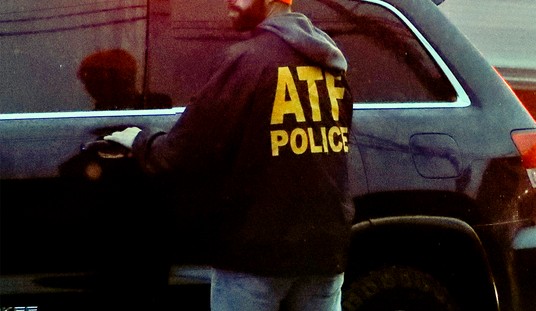WASHINGTON — “It’s all unfolding just like you said it would.” This flattering accolade was proffered by a retired military officer this week as we discussed how units loyal to Moammar Gadhafi were pummeling rebel forces in eastern Libya. My friend is a “contractor” with a company uncharitably referred to around here as a “Beltway bandit.” He and his colleagues more accurately are portrayed as “auxiliaries,” and they describe themselves as being “quietly engaged” in “peripheral activities supporting our national interests.” Nearly all of the younger ones involved in these endeavors are military veterans of the decade-long fights in Afghanistan and Iraq.
It was an auxiliary — not a U.S. military or government source — who encouraged me to report that allied air-ground control teams and commandos were already on the ground in Libya providing target data when the first French and British airstrikes took place near Benghazi on March 19. Afterward, I was disparaged for disclosing classified information. The critique is misplaced.
My reports described why these ground control teams were essential to allied aircraft attacks on Gadhafi’s armored mechanized units that were about to overrun rebel forces. I noted that these close air support missions preceded U.S. and British missile strikes and airstrikes against Gadhafi’s air defense sites and that they had nothing to do with establishing a no-fly zone as we were being told by the Obama administration. The information I relayed was not classified — but it could not be independently confirmed. Now it is.
On Wednesday this week, Reuters was the first to report that President Barack Obama “signed a secret order authorizing covert U.S. government support for rebel forces seeking to oust Libyan leader Muammar Gaddafi.” The story, filed from Washington, was sourced to unnamed government officials. Since then, the story has been amplified and embellished by every mainstream media outlet in the U.S. and overseas.
A “secret order” — properly referred to as a presidential finding — is required when the commander in chief deems that vital U.S. national interests require the involvement of U.S. intelligence agencies in “covert activities.” According to press reports, the finding authorizes a “full range of activities,” from “collecting intelligence” on Gadhafi’s forces to “gathering information on, training, paying and arming regime opponents.”
Of course, that’s the mission of the U.S. special forces. Their motto, De oppresso liber (“To free the oppressed”), is particularly appropriate for the situation in Libya — but not for the O-Team. When asked, White House press secretary Jay Carney refused to comment “on intelligence matters” but maintained our policy remains unchanged: “Gadhafi must go.” Obama says that “we are examining all options to support the opposition” while insisting that “no American troops will be deployed on the ground in Libya.” And he proudly proclaims, “We have handed off operations in Libya to NATO.”
The incoherence in all this — including the recently leaked presidential finding — is simply stunning and reflects what’s happening on the ground. The no-fly zone now being “maintained by our coalition partners” is in fact being run by U.S. officers wearing NATO hats. The intelligence, surveillance, reconnaissance, search and rescue, and command and control aircraft being employed over Libya are being flown by American pilots and aircrews.
The O-Team — uncertain and somnolent from the start about what to do about the protests that began last December in Tunisia — once again is caught in the web of ambivalence. This perpetual state of “What do we do now?” is potentially catastrophic for the people of Libya.
This week, first at National Defense University and then at Georgetown University, Obama claimed to be at once a leader and a follower. He told his audiences that “we stopped Gadhafi’s deadly advance” but that NATO is now “protecting Libyan civilians.” He said, “We’ve led an international effort in Libya to prevent a massacre and maintain stability throughout the broader region.” And now we know — undoubtedly thanks to a “leaker” in the Obama administration — that the president has “boldly” ordered our intelligence services into the fray.
“Prevent a massacre”? Try telling that to the tens of thousands of Libyans in Bin Jawwad, Ras Lanouf and Brega who were turned over to Gadhafi’s tender mercies this week when rebel forces retreated yet again toward Benghazi.
“Maintain stability in the broader region”? Perhaps an administration spokesman can explain what that means to those who belong to disparate protest movements in Syria, Yemen, Bahrain and even Iran.
Meanwhile, we still don’t know who the “rebels” we “covertly” are helping really are. Rep. Mike Rogers, chairman of the House Permanent Select Committee on Intelligence, put it best: “It’s safe to say what the rebels stand against, but we are a long way from an understanding of what they stand for.” Now that Obama has committed us to war, finding out who our allies are may prove as difficult as discerning what this administration stands for.
Finding Out

Advertisement







Join the conversation as a VIP Member